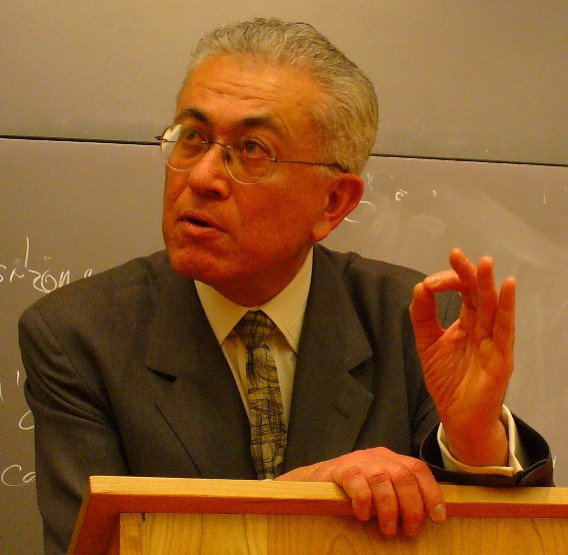Em 16 de maio de 2008, apoiando o presidente Luiz Inácio Lula da Silva na escolha do seu nome para coordenar o Plano Amazônia Sustentável (PAS)
Fonte: [pt, http://oglobo.globo.com/pais/mat/2008/05/16/mangabeira_diz_que_lula_agiu_certo_ao_lhe_confiar_coordenacao_do_plano_amazonia_sustentavel-427421435.asp, O Globo Online]
Mangabeira Unger Frases famosas
Em 4 de novembro de 2008, em um comentário feito ao Estadão Online, sobre, naquele momento, o quase presidente eleito Barack Obama, seu ex-aluno na Universidade de Harvard"
Fonte: [pt, http://www.estadao.com.br/internacional/not_int272010,0.htm, Estadão Online]
Em 17 de junho de 2008, na primeira reunião do Grupo Executivo do Plano Amazônia Sustentável (PAS)
Fonte: [pt, http://www.nae.gov.br/site/index.php?option=com_content&task=view&id=162&Itemid=2, Núcleo de Assuntos Estratégicos (NAE)]
“Uma candidatura de oposição precisa desmascarar o presidente e mostrar quem ele é.”
Fonte: Revista Veja http://veja.abril.com.br/030997/p_015.html
Mangabeira Unger: Frases em inglês
Fonte: The Self Awakened: Pragmatism Unbound (2007), p. 69
Fonte: The Critical Legal Studies Movementː Another Time, A Greater Task (2015), p. 15
Quoted in David Remnick, The Bridgeː The Life and Rise of Barack Obama (2010), p. 185
On Barack Obama
Fonte: Law in Modern Societyː Toward a Criticism of Social Theory (1976), p. 242
Fonte: The Self Awakened: Pragmatism Unbound (2007), p. 80
Fonte: Plasticity Into Power: Comparative-Historical Studies on the Institutional Conditions of Economic and Military Success (1987), p. 12
Fonte: Plasticity Into Power: Comparative-Historical Studies on the Institutional Conditions of Economic and Military Success (1987), p. 160
Fonte: Social Theoryː Its Situation and Its Task (1987), p. 7
Fonte: False Necessityː Anti-Necessitarian Social Theory in the Service of Radical Democracy (1987), p. 97
Fonte: False Necessityː Anti-Necessitarian Social Theory in the Service of Radical Democracy (1987), p. 564
Fonte: The Self Awakened: Pragmatism Unbound (2007), p. 123-4
Fonte: Democracy Realizedː The Progressive Alternative (1998), p. 126
Quoted in David Remnick, The Bridgeː The Life and Rise of Barack Obama (2010), p. 185 (explaining the nature of Obama's participation in the two seminars that Obama took with Unger while studying at Harvard Law School)
On Barack Obama
Fonte: The Self Awakened: Pragmatism Unbound (2007), p. 57
Fonte: The Self Awakened: Pragmatism Unbound (2007), p. 70
Fonte: The Religion of the Future (2014), p. 385
Fonte: Plasticity Into Power: Comparative-Historical Studies on the Institutional Conditions of Economic and Military Success (1987), pp. 12-13
Fonte: Plasticity Into Power: Comparative-Historical Studies on the Institutional Conditions of Economic and Military Success (1987), p. 12
Fonte: Plasticity Into Power: Comparative-Historical Studies on the Institutional Conditions of Economic and Military Success (1987), pp. 169-170
Fonte: Law in Modern Societyː Toward a Criticism of Social Theory (1976), p. 245
Fonte: The Self Awakened: Pragmatism Unbound (2007), p. 27
Fonte: False Necessityː Anti-Necessitarian Social Theory in the Service of Radical Democracy (1987), p. 361
Fonte: Law in Modern Societyː Toward a Criticism of Social Theory (1976), p. 266-7
Fonte: The Self Awakened: Pragmatism Unbound (2007), p. 143-4
Fonte: The Religion of the Future (2014), p. 298-9
Fonte: The Self Awakened: Pragmatism Unbound (2007), p. 134
Fonte: False Necessityː Anti-Necessitarian Social Theory in the Service of Radical Democracy (1987), p. 500
